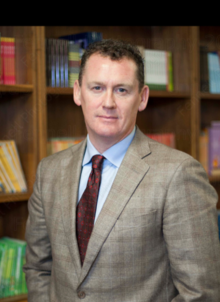
Age, Biography and Wiki
Barry O’Callaghan was born on 1969 in Mitchelstown, County Cork, Ireland, is a Former. Discover Barry O’Callaghan’s Biography, Age, Height, Physical Stats, Dating/Affairs, Family and career updates. Learn How rich is He in this year and how He spends money? Also learn how He earned most of networth at the age of 54 years old?
| Popular As | N/A |
| Occupation | CEO of Rise Global |
| Age | 54 years old |
| Zodiac Sign | |
| Born | 1969, 1969 |
| Birthday | 1969 |
| Birthplace | Mitchelstown, County Cork, Ireland |
| Nationality | Ireland |
We recommend you to check the complete list of Famous People born on 1969.
He is a member of famous Former with the age 54 years old group.
Barry O’Callaghan Height, Weight & Measurements
At 54 years old, Barry O’Callaghan height not available right now. We will update Barry O’Callaghan’s Height, weight, Body Measurements, Eye Color, Hair Color, Shoe & Dress size soon as possible.
| Physical Status | |
|---|---|
| Height | Not Available |
| Weight | Not Available |
| Body Measurements | Not Available |
| Eye Color | Not Available |
| Hair Color | Not Available |
Dating & Relationship status
He is currently single. He is not dating anyone. We don’t have much information about He’s past relationship and any previous engaged. According to our Database, He has no children.
| Family | |
|---|---|
| Parents | Not Available |
| Wife | Not Available |
| Sibling | Not Available |
| Children | Not Available |
Barry O’Callaghan Net Worth
His net worth has been growing significantly in 2022-2023. So, how much is Barry O’Callaghan worth at the age of 54 years old? Barry O’Callaghan’s income source is mostly from being a successful Former. He is from Ireland. We have estimated
Barry O’Callaghan’s net worth
, money, salary, income, and assets.
| Net Worth in 2023 | $1 Million – $5 Million |
| Salary in 2023 | Under Review |
| Net Worth in 2022 | Pending |
| Salary in 2022 | Under Review |
| House | Not Available |
| Cars | Not Available |
| Source of Income | Former |
Barry O’Callaghan Social Network
| Wikipedia | |
| Imdb |
